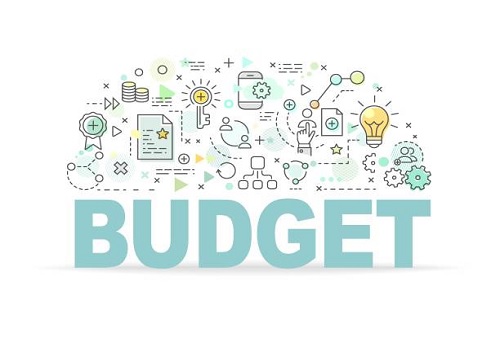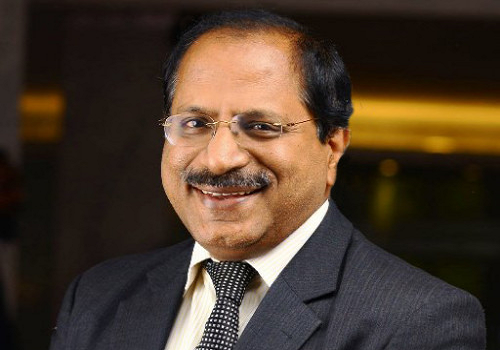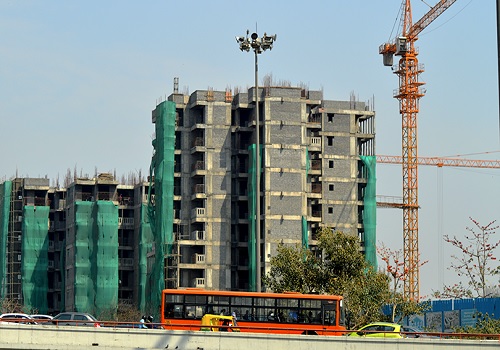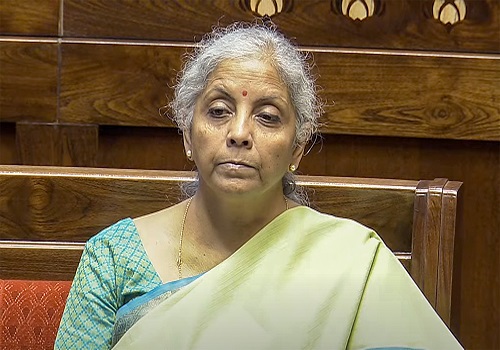smallcase Managers Survey Highlights Expectations Ahead of Union Budget 2024
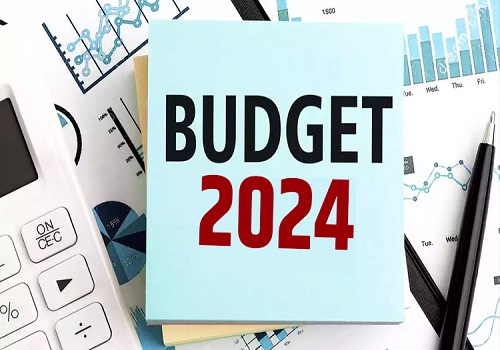
A study conducted by smallcase, a leading investments platform, revealed that over 80% of smallcase managers expect status quo in the upcoming Union Budget. They expect a hike in India's planned capex spending and more budgetary allocations in areas like Infra, Power, Railways & Defence. The survey conducted with over 50 smallcase managers reveals that they expect a fiscally prudent yet expansionary budget, a continuation of the earlier policies of the NDA Government.
Smallcase managers are financial experts or entities that create and manage smallcases. Over 90% of the smallcase managers in the study have predicted some near-term volatility around the budget, though the recommendation is to look at it as a buying opportunity with a long-term horizon. The smallcase managers expect Nifty reaching 25,000 levels and Sensex nearing 90,000 by the year end.
Speaking on the survey, Vasanth Kamath, Founder and CEO, smallcase said, “We are thrilled to launch our inaugural smallcase managers’ survey, which provides investors an early look at the opinions and expectations of the market surrounding the upcoming Union Budget. The survey offers a view on what they anticipate will happen in the equity markets, on fiscal deficit and GDP, sectors that are likely to benefit from the Budget and more. The Union Budget will impact the different themes & strategies that retail investors are taking exposure to via multiple smallcases on the platform”.
Expectation from the upcoming Union Budget | More budgetary allocations in areas like Infra, Power, Railways & Defence expected
The smallcase managers indicated a status quo in the budget with continuation in the earlier policies of the Govt. They foresee more hikes in India's planned capex spending. During the interim budget in February, the Hon’ble Finance Minister Nirmala Sitharaman has suggested increasing the capital expenditure goal by 11.1%to reach a record Rs. 11.11 lakh crore for the ongoing fiscal year starting April 1. To stimulate growth in an economy aspiring to become the world's third-largest by 2030, smallcase managers predict more budgetary allocations in areas like Infra, Power, Railways & Defence. They highlight that a higher private investment is leading to increased demand for metals, ancillaries, and capital goods. While, a strong component ecosystem is being built in electronics manufacturing, as seen in declining import numbers and increased export numbers, and the focus on second-largest employment-generating textiles is expected to continue considering higher sourcing from the country by its global counterparts. On the other hand, discretionary consumption is already doing well, some focus in the budget can be expected to boost rural consumption in a sustainable manner.
Fiscal deficit target | Below 5% in the upcoming budget
smallcase managers also believe that the fiscal deficit target will be further reduced below 5% in the upcoming budget, boosted by The Reserve Bank of India's substantial dividend o f Rs. 2.11 lakh crore. They expect a revision of 100 basis points if the FM is looking at the goal of reducing the deficit to 4.5% by 2026. While they expect GST collection to deepen and improve further due to better economy and compliance, they believe Direct tax collections can grow significantly as corporate profits rise and TDS collections increase.
GDP target for FY25 | Nominal GDP growth between 11-12% over the next few years expected
As per survey, smallcase managers expect the GDP growth rate to stay robust this year too. The real GDP growth for FY25 is expected to be in the 7-8% range with GDP crossing the USD 4 trillion mark.
The survey reveals the expectation that India will continue to remain on a high growth path driven by the manufacturing sector, which comprises energy transition, textiles, electronics, capital goods, etc., and higher consumption. It indicates that a normal monsoon this fiscal will improve the performance of the farm sector which in turn will lead to higher rural consumption.
As per the managers, a favourable monsoon might result in lifting export restrictions, and the government is expected to utilize a portion of the RBI's Rs. 2.1 lakh crore dividend to bolster consumption among lower-income groups, particularly in rural areas.
View on Taxes | No significant tax changes for salaried employees and corporates, despite expectations of tax relief
Over 60% of the smallcase managers don't foresee any notable changes in Taxes in the upcoming budget. Though, they suggest introducing a favourable tax rate for new manufacturing setups, allowing companies established after October 1, 2019, to pay a reduced 15% tax rate. Also, they recommend looking at the current Rs 1.5 lakh deduction limit under Section 80C for individuals due to the increasing inflation and financial obligations. The Section 80C deduction limit was last revised during the Union Budget 2014-15, increasing the tax benefit threshold from Rs. 1 lakh to Rs. 1.5 lakh.
Sectors in Focus | Believe the government will continue its focus on Infrastructure, Cleantech, Housing, Healthcare, subsidies in Agriculture likely, a hike in CapEx spending likely.
As per smallcase managers, Infrastructure, Power, Defence and Manufacturing sectors will be in focus in the upcoming budget. They believe that with a focus on sustainable developments, the budget may benefit the clean tech space.
Overall, they see Infra, transportation, and real estate among the major growth areas. The financial services sector is also expected to do well. So, will Agro, Renewables, Ethanol.
Since the allocation of ministries largely presents a continuation of the leadership in critical portfolios, the managers believe that sectors such as defence are set to benefit significantly from India's ambitious target of increasing defence exports to $5 billion by 2024–25. Additionally, India's electronic manufacturing is projected to receive a substantial boost, aiming to reach around $250 billion within the next five years. The goal of achieving approximately 500 GW in renewable energy capacity by FY30, up from 179 GW in FY24, is expected to amplify investments. Emphasizing a recycling theme could also garner attention in the budget for support of global sustainability targets.
Portfolio Strategy | Investors are recommended to have well-diversified portfolio, rebalancing periodically, with exposure in Gold, Silver and keeping Cash for buying on dips
A well-diversified portfolio allocating capital to companies where the growth rates are exponential due to tailwinds at reasonable prices, allocation to other asset classes like Gold, Silver and Gilt, and keeping 10% - 20% cash in the portfolio for buying on dips, is ideal approach to combat any near-term volatility. They recommend investors to not speculate on any specific event but to allocate capital for the long term in smallcases with good growth opportunities and reasonable valuations.
The smallcase managers believe that NDA's return for a third term ensures continuity in policy frameworks, which is crucial for India's goal of becoming a $5 trillion economy. Historically, government capex has driven economic growth and is now transitioning to private investment. Key sectors like infrastructure, railways, defence, textiles, and renewable energy are poised for growth, bolstered by favorable policies. The manufacturing sector, which currently contributes 17% of GDP, aims to increase its share to 25% of GDP, benefiting from global trends and domestic policies. This will have a ripple effect, leading to higher consumption. Another important component is GDP. Overall, we are likely to witness a higher level of capital formation in the economy, a large number of companies coming to capital markets, and a wealth creation cycle in India.
The survey saw participation of popular smallcase managers such as Abhishek Banerjee (Lotusdew), Naveen KR (Windmill Capital), Nitya Shah and Aniket Kulkarni (Kamayakya), Divam Sharma (Green portfolio), Shailesh Saraf (Valuestocks), Arvind Kothari (Niveshaay), Vidya Bala (PrimeInvestor.in), Dipen Shah (Stayvan), Ashwini Kumar Shami (Omniscience Capital), Paras Chedda and Piyush Mehta (Caprize Investment Managers), Raj S Vyas (Teji Mandi) and Rakesh Pujara (Compounding Wealth Advisors).
Above views are of the author and not of the website kindly read disclaimer










More News

Views on budget Markets - Debt & Equity & Sectors Outlook by Tata Mutual Fund

